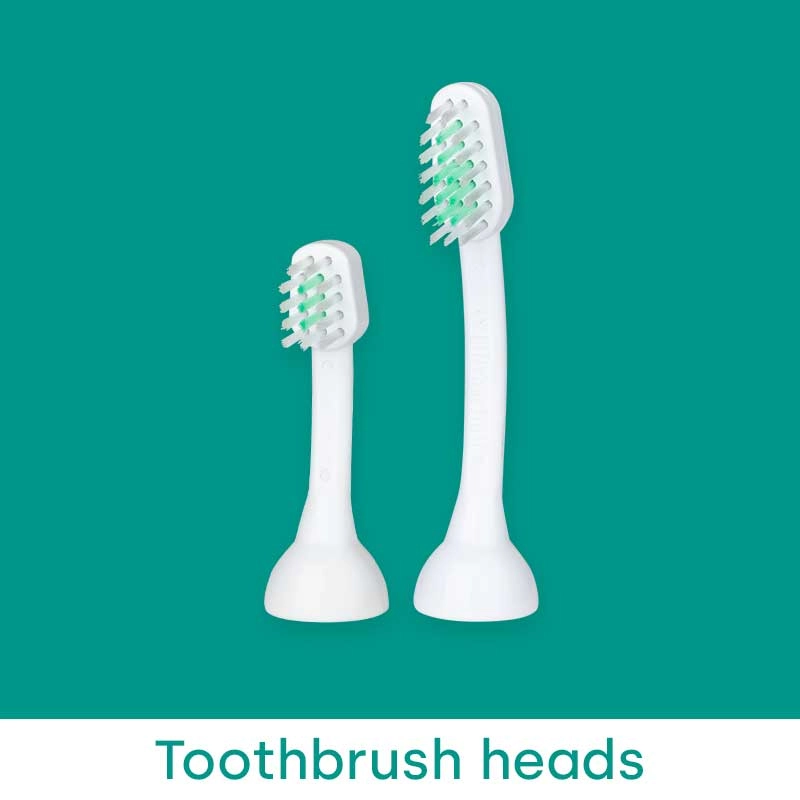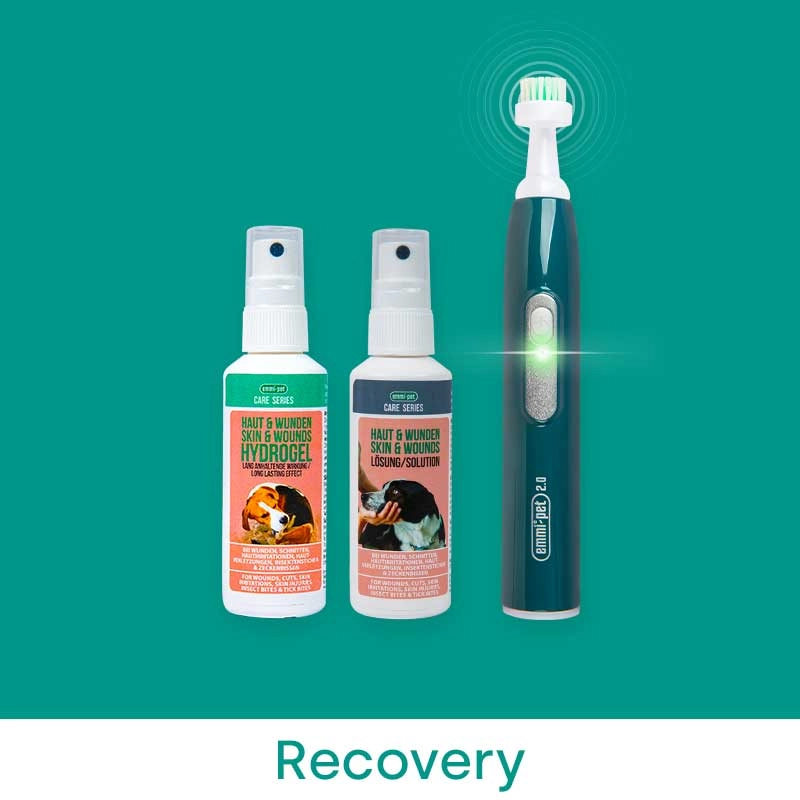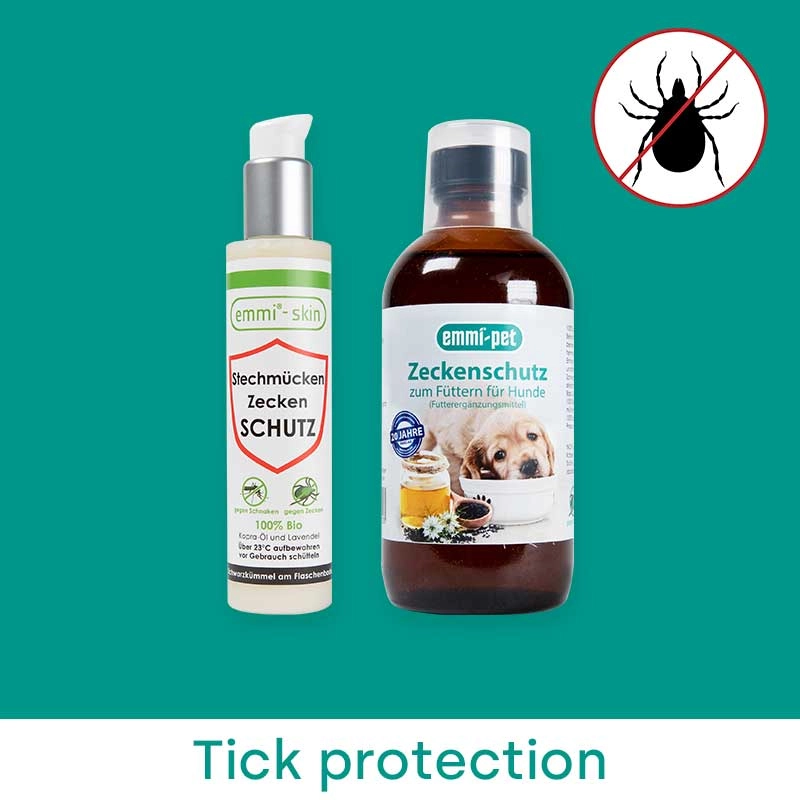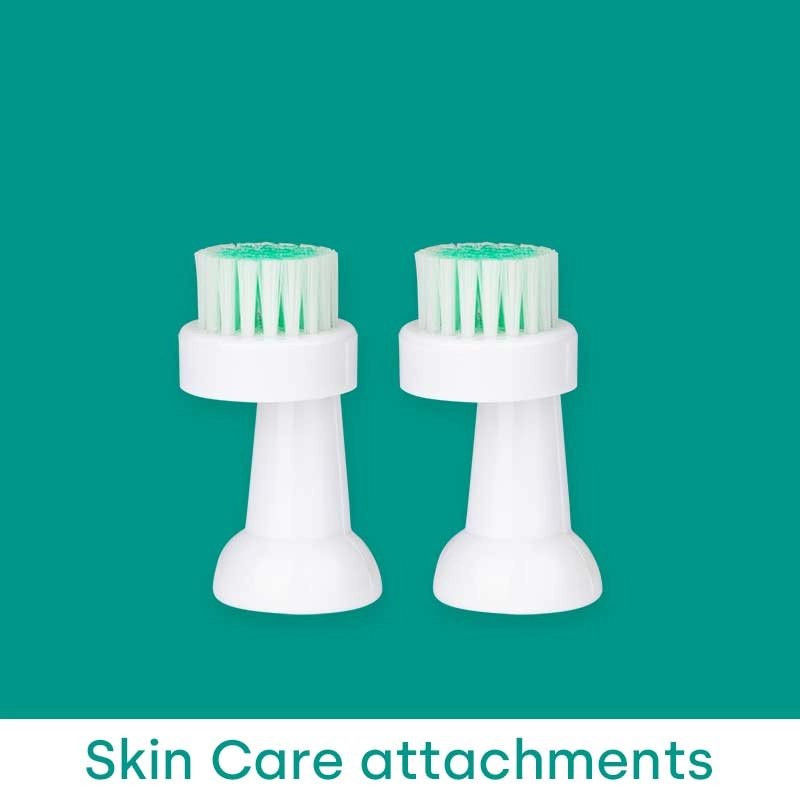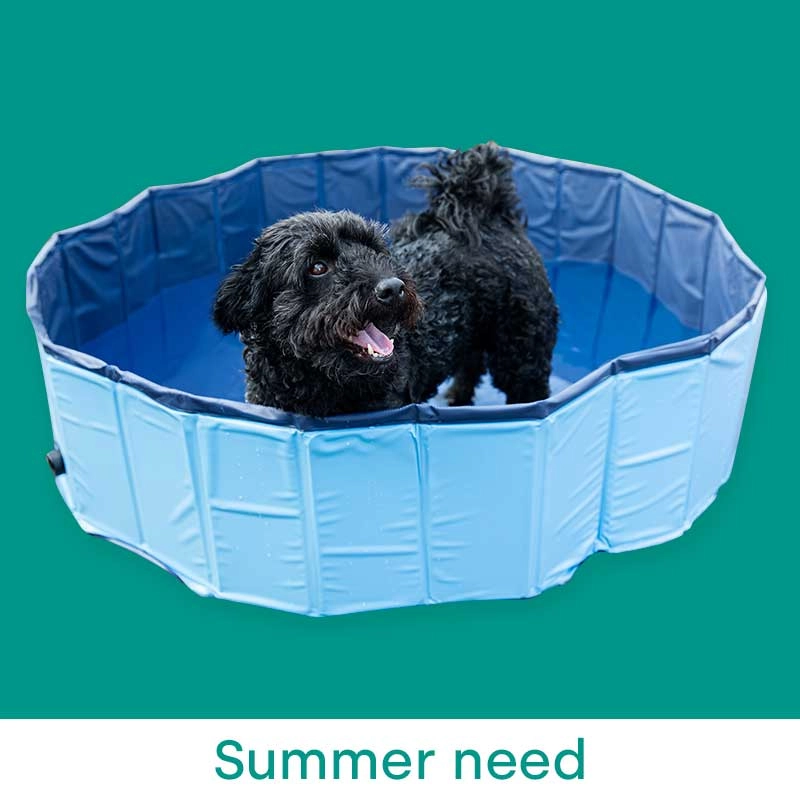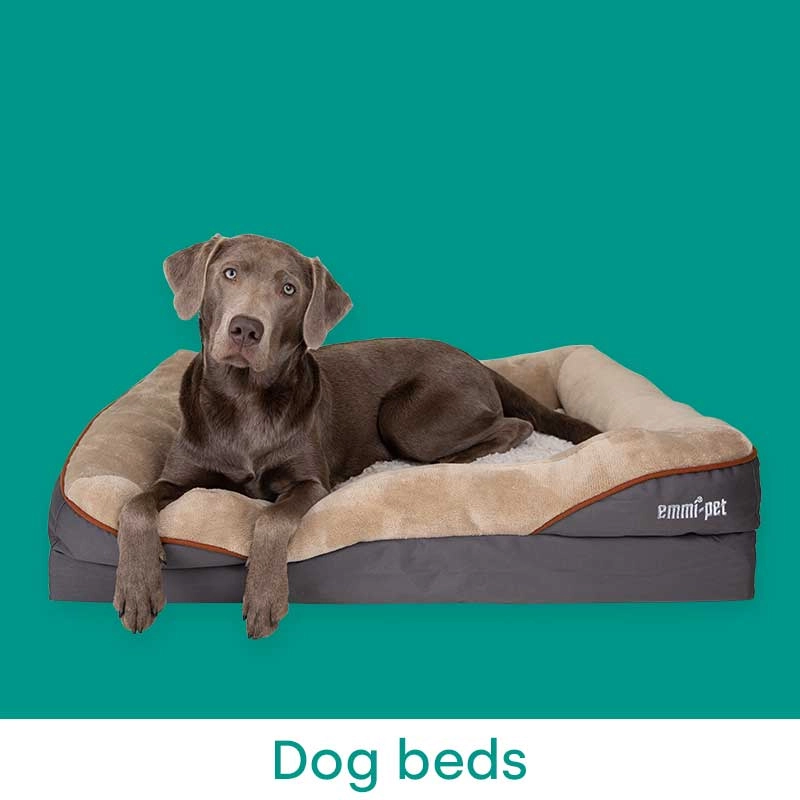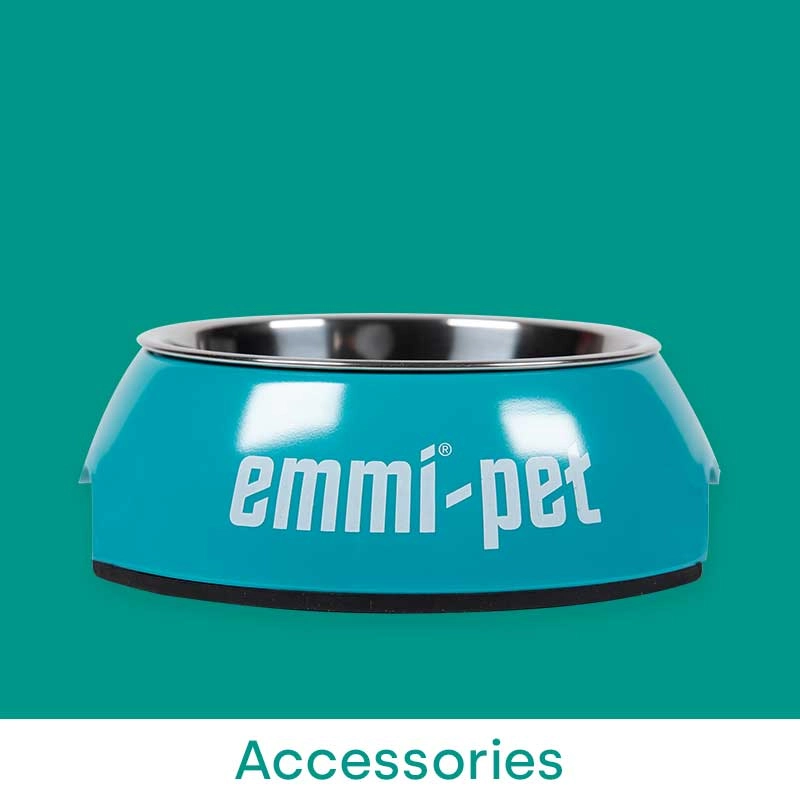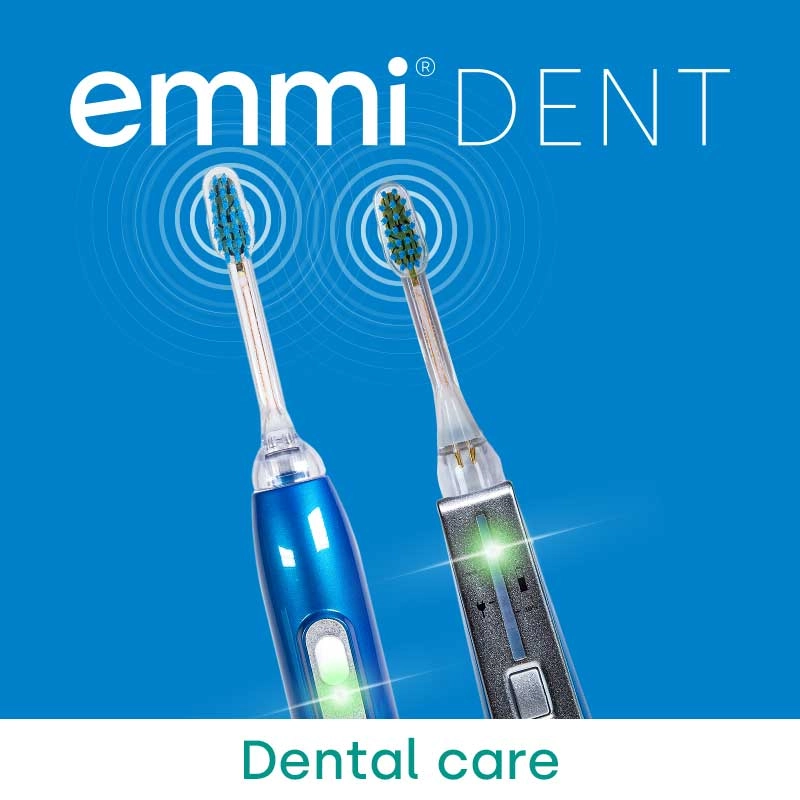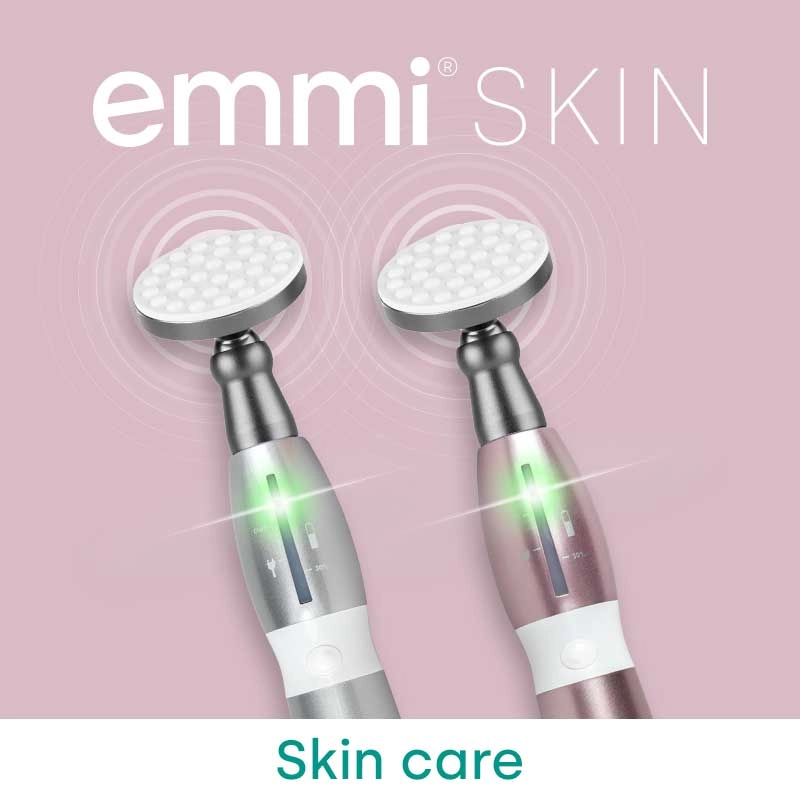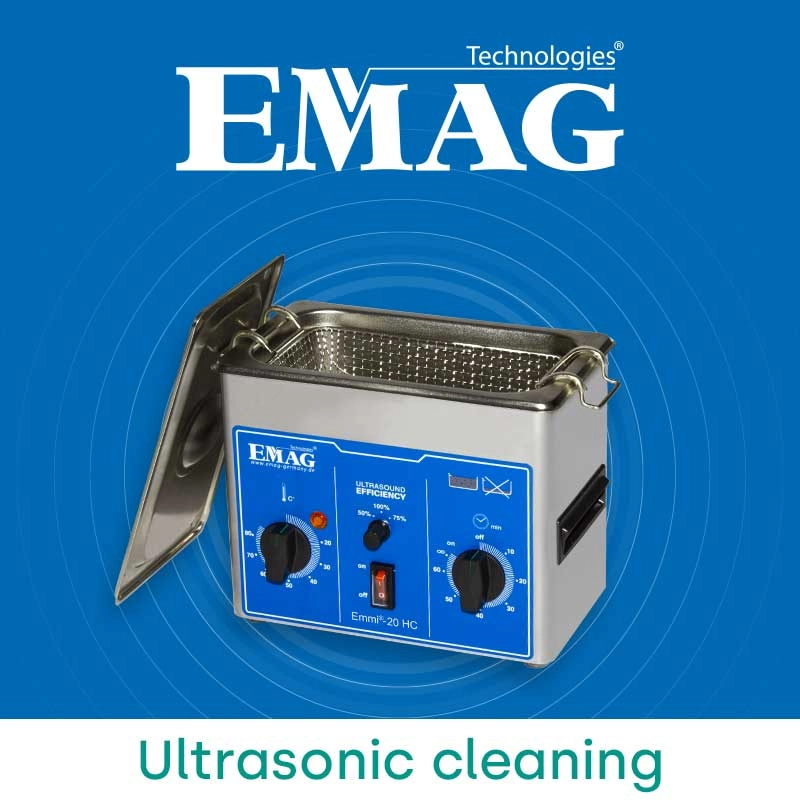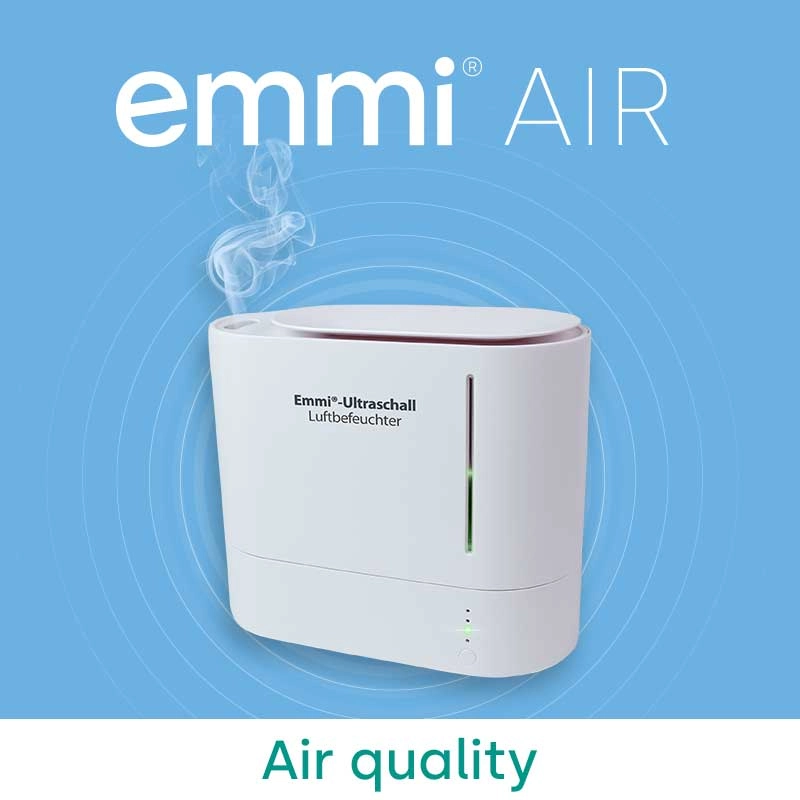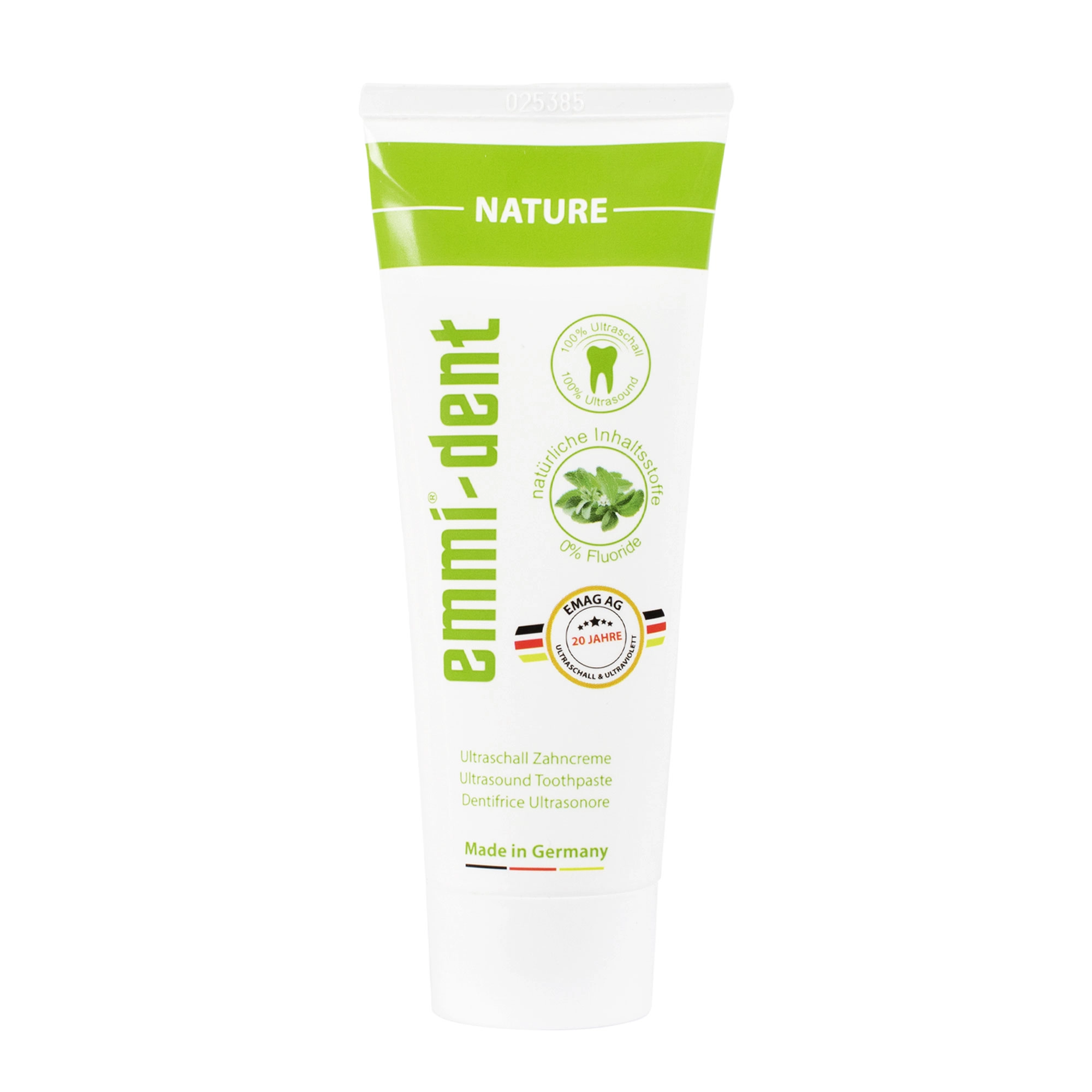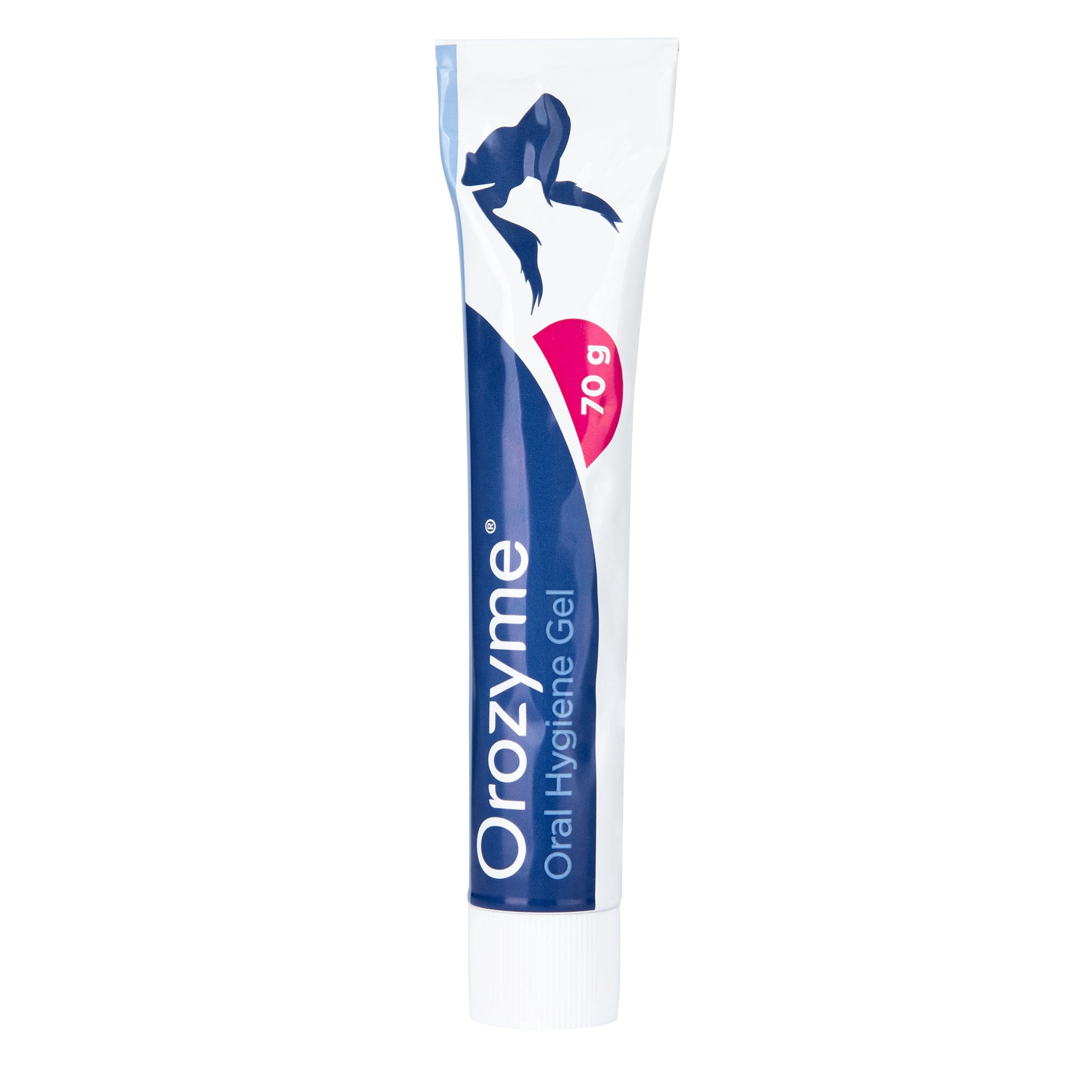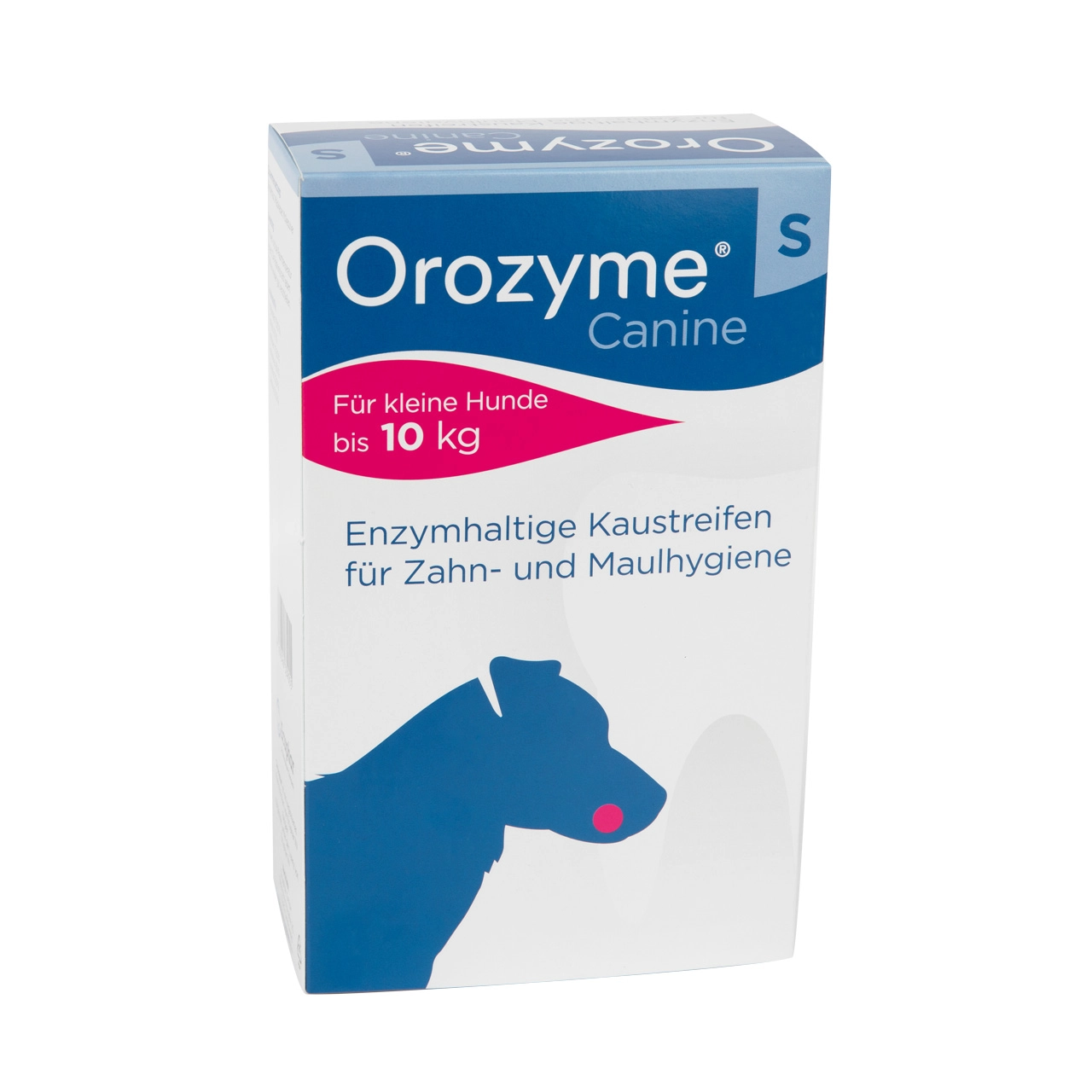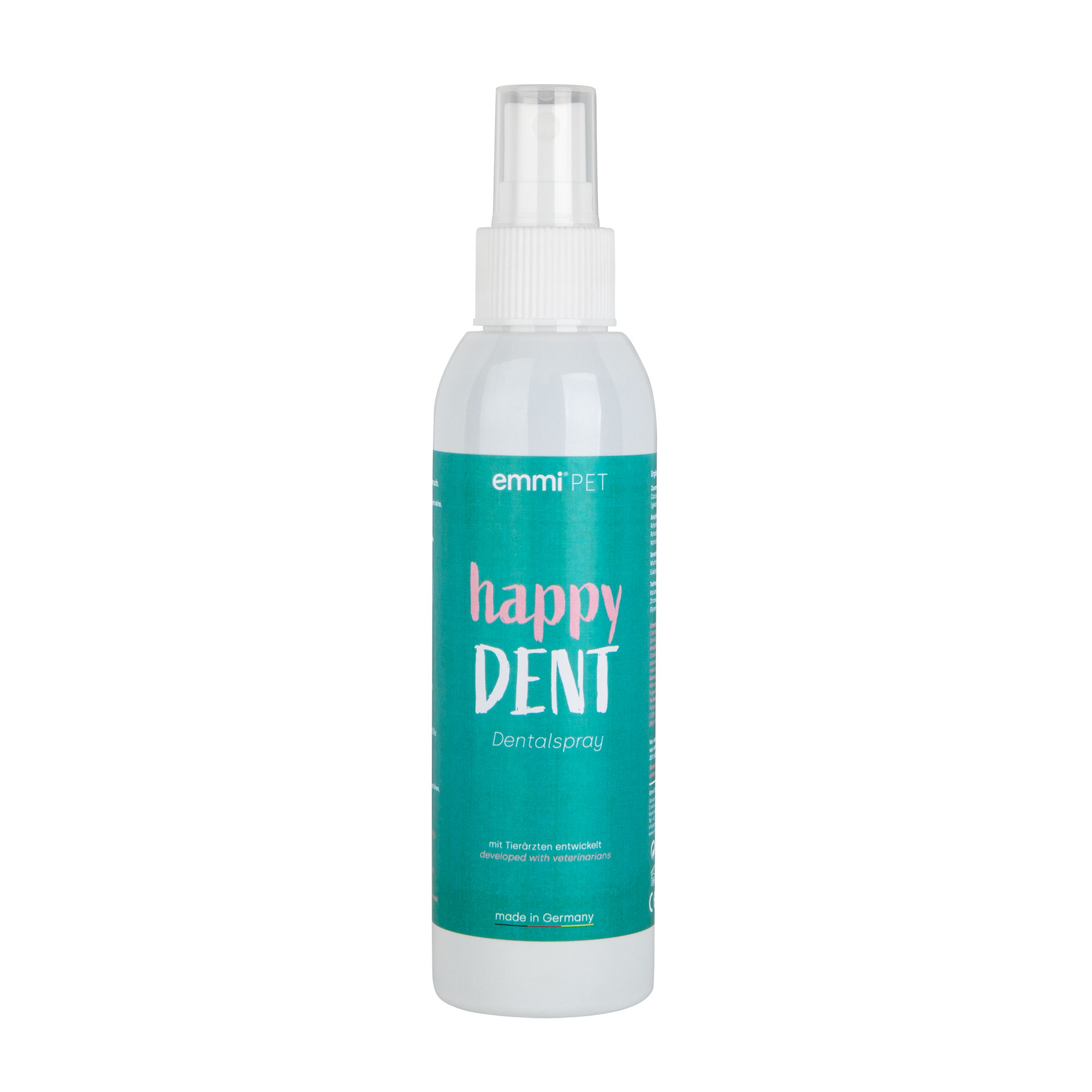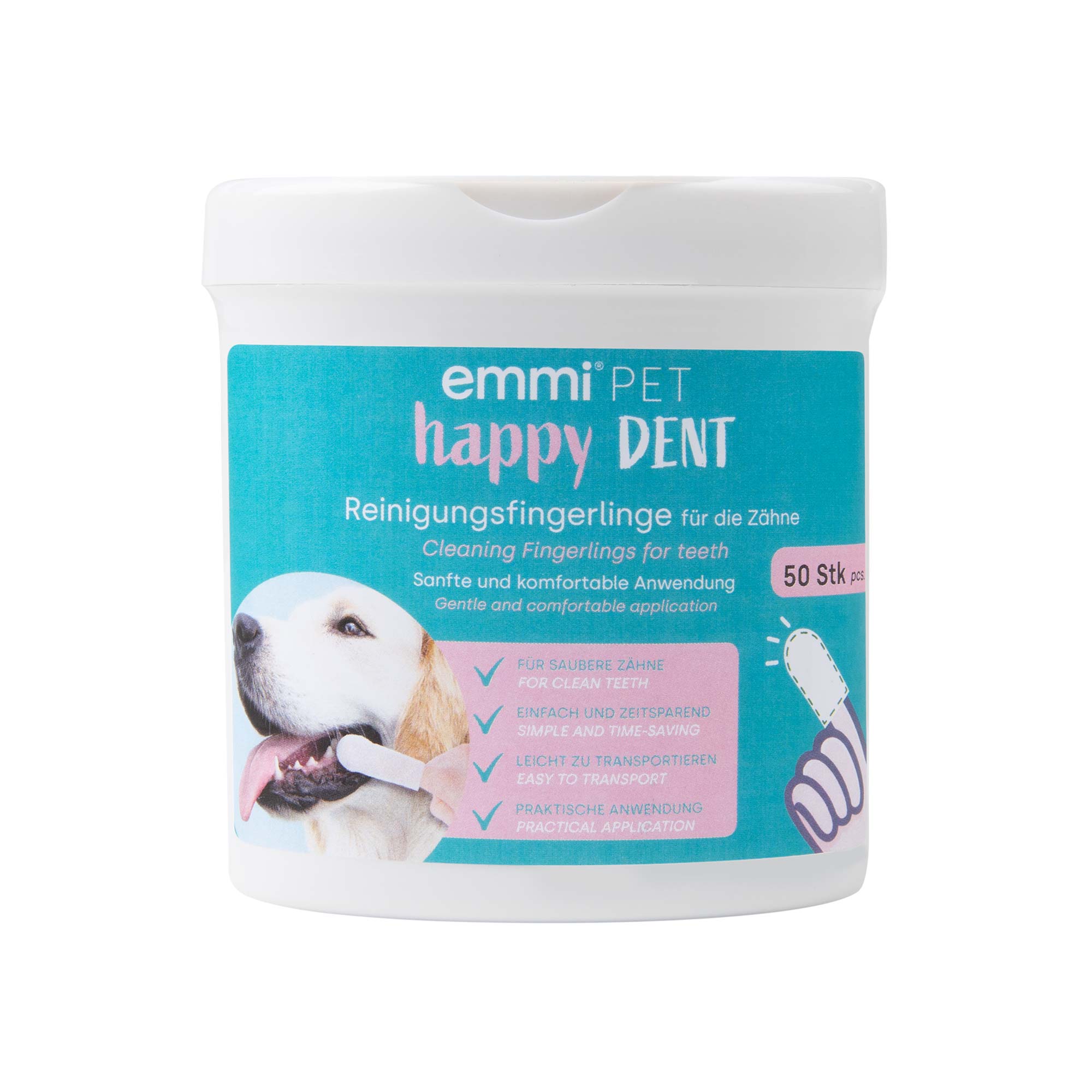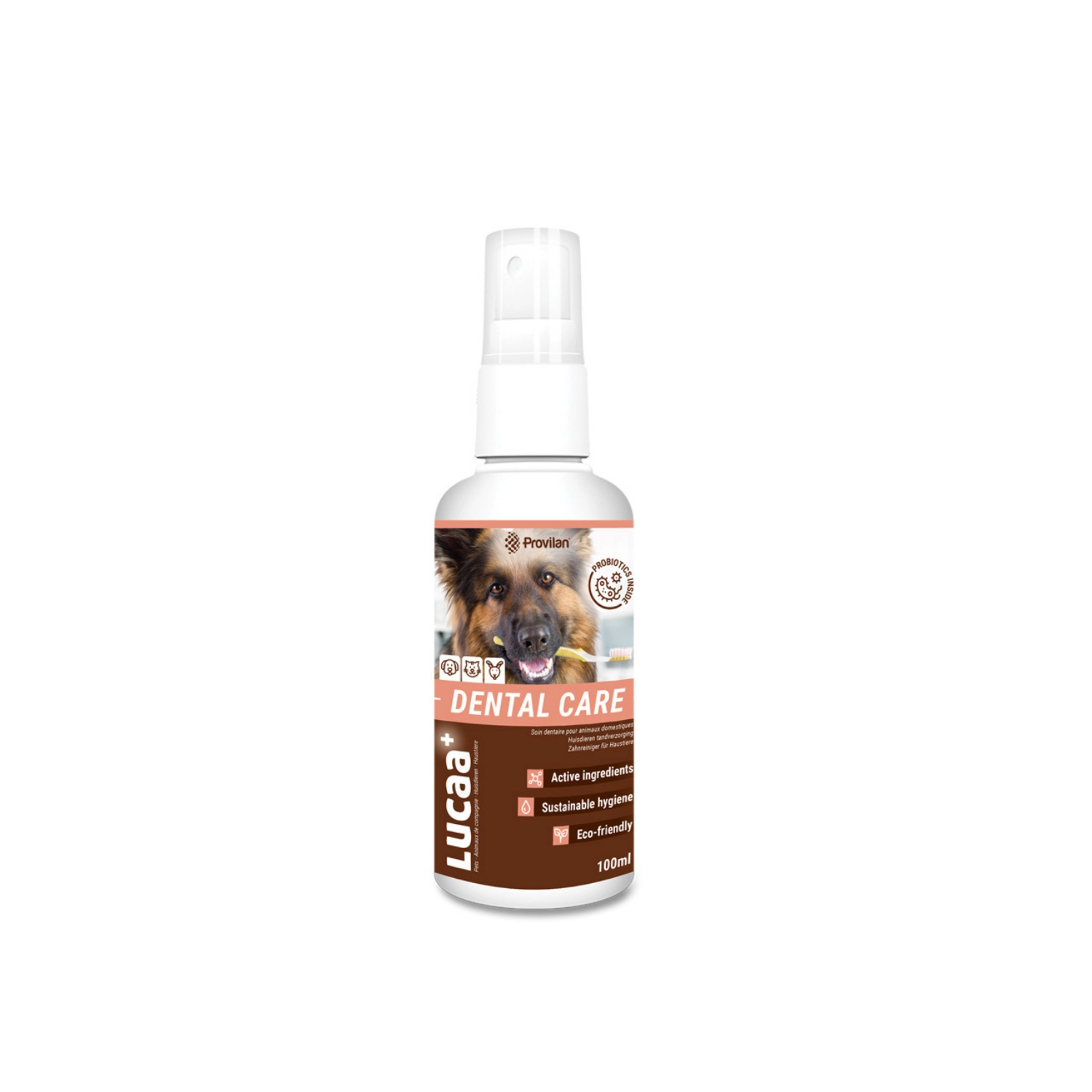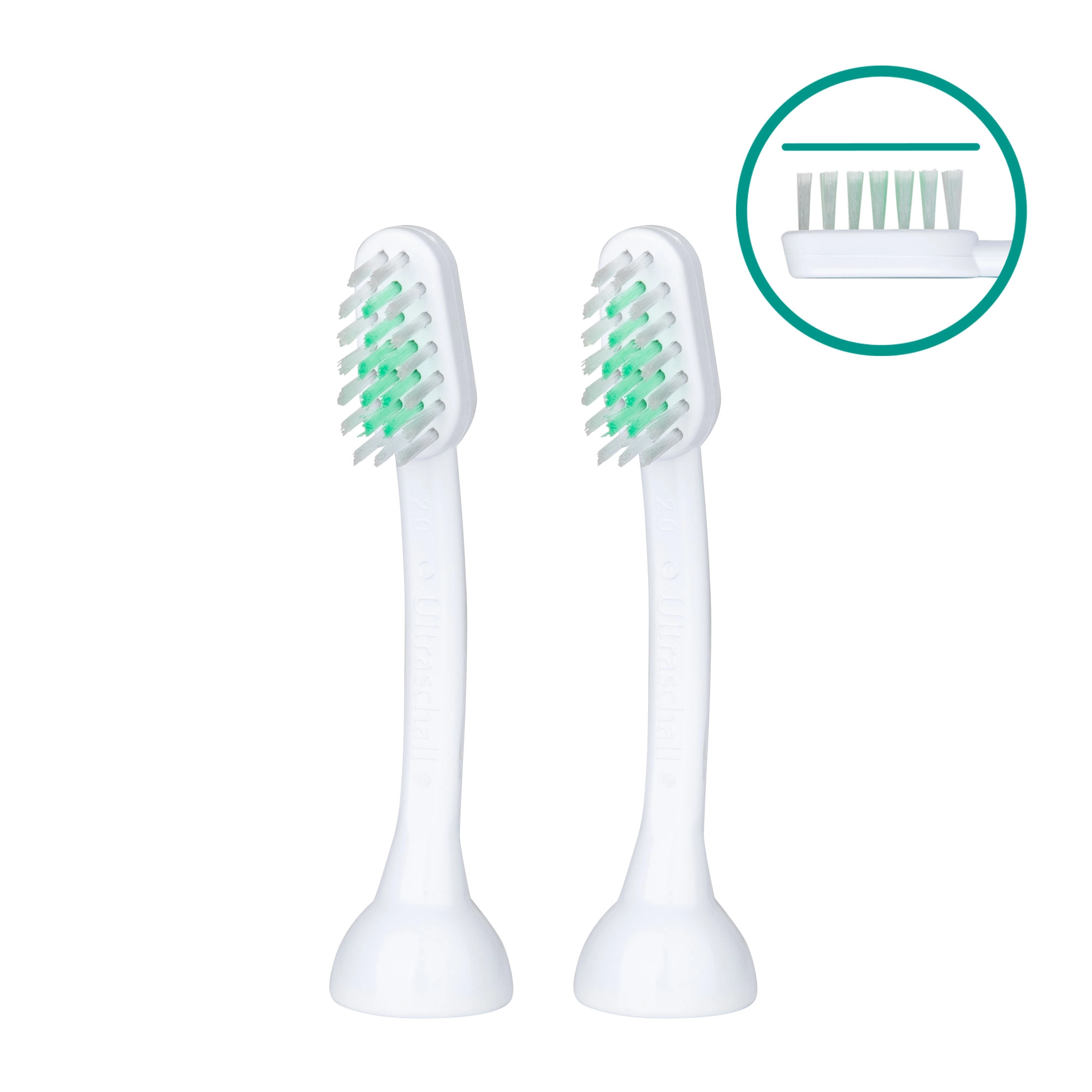Content: 0.075 Litres (£57.87* / 1 Litres)
Content: 0.07 kg (£172.71* / 1 kg)
The importance of dental care for dogs
Dental care for our faithful four-legged friends is much more than a routine - it is an essential part of general health care. Dental disease can not only cause pain in dogs, but can also lead to other serious health problems. It is therefore important that we as dog owners live up to our responsibility and ensure effective and gentle dental care.
Common dental problems in dogs, such as periodontitis, gingivitis and tartar build-up, are often the result of inadequate dental care. These problems are not only painful, but can also lead to reduced food intake and thus to nutritional deficiencies. Even more concerning is the fact that bacteria from the mouth can spread throughout the body and potentially cause serious illnesses such as kidney and heart disease.
Just imagine: Your dog plays happily, his coat shines, and when he barks happily, a healthy, clean set of teeth shines. This is not a dream, but the result of consistent oral hygiene. With our emmi-pet 2.0 ultrasonic toothbrush, your dog's health starts in the mouth. This innovative toothbrush works with ultrasonic technology and enables teeth to be brushed without scrubbing. It is completely silent and vibration-free, making it particularly pet-friendly. Equally important is the regular use of
tooth gels or chewing strips, which contribute to daily dental care and prevent inflammation of the gums.
Remember that dental care in dogs is a lifelong process. Start early and be consistent to ensure the best possible oral hygiene for your four-legged friend.
Dental hygiene in dogs: Yellowish brown discolored teeth and brown edges
As you may have noticed, yellowish brown discoloration or brown edges on the teeth are one of the most common dental problems in dogs. These are usually caused by surface discoloration and are often not a sign of serious health problems. However, it is recommended that these problems are addressed promptly to prevent the formation of plaque and tartar, which can lead to serious gum disease and dental abscesses. This is why the regular use of dental care gel or chewing strips is so important, as it contributes to daily dental care and prevents gum inflammation.
Dental problems: Gum inflammation and bad breath
Another common problem with dogs and cats in terms of dental care is inflamed gums and bad breath. It is essential to regularly check your dog's breath for signs of bad odor. Inflamed gums can be caused by:
- Plaque
- Tartar on Teeth (Dental Calculus)
- Unhealthy oral flora
- Lack of dental care
- More serious conditions such as diabetes or kidney problems.
The right dental care for dogs
We all know that dental care for dogs makes sense. The real challenge lies in putting effective oral hygiene practices into action. Brushing your dog's teeth plays a crucial role in this process. Ideally, you should brush your dog's teeth daily. But even a weekly cleaning can be helpful if you're short on time.
Choosing the right tools is also crucial for your dog's dental care. Opt for a toothbrush specially developed for dogs, be it a conventional one with a brush head or an ergonomically shaped one. The toothpaste should also be dog-friendly and contain no harmful ingredients. A toothpaste with enzymatic or anti-tartar properties is best to support your dog's dental health.
There are also specialized dental care products for dogs, such as the emmi-pet ultrasonic toothbrush and the corresponding ultrasonic toothpaste. These products are specially designed for the dental care of dogs and prove to be very effective. With the right approach and the right tools, you can make a significant contribution to maintaining the health and well-being of your four-legged friend.
Brushing your dog's teeth: technique and frequency
Brushing your dog's teeth is an essential part of dental care. But how often? Ideally, you should brush your dog's teeth every day to prevent plaque build-up, which can occur within three to five days. But brushing two to three times a week is also acceptable. If you use an ultrasonic toothbrush like the emmi-pet 2.0, you only need to brush your dog's teeth once a week:
- Apply a small amount of special toothpaste to the brush
- Gently run the brush along the rows of your dog's teeth. The duration may vary depending on the dog, ideally it should take no longer than a few minutes for a thorough cleaning.
- It is crucial to clean all teeth and interdental spaces thoroughly.
Choosing the right dog toothbrush and toothpaste
Choosing the right toothbrush and toothpaste for your dog is just as important as the brushing technique itself. It's crucial to choose a toothbrush designed for dogs, whether it's a conventional one with a brush head or an ergonomically shaped one. The toothpaste should be suitable for dogs, contain no harmful fluoride and have enzymatic or anti-tartar properties.
There are actually special dental care products for dogs, such as our emmi-pet 2.0 ultrasonic toothbrush and the accompanying ultrasonic toothpaste. These products are very effective in maintaining your dog's dental health.
When choosing the right size and shape of dog toothbrush, you should consider the size of your dog and the type of food he eats. Models with two different brush head sizes are suitable for almost all dog sizes and special attachable brushes for small dogs are also available.
The right dental care for puppies
Dental care is an essential aspect of your dog's health and should not only be considered for adult dogs, but especially for puppies. Especially at a young age, when puppies lose their milk teeth and grow permanent teeth between the fourth and seventh month of life, they are more susceptible to dental problems. It is therefore important to start dental care early.
It is relatively easy to get puppies used to having their teeth brushed. The small, curious four-legged friends learn quickly and it is important that they get used to having their muzzle touched and their mouth opened.
Es gibt eine Vielzahl von Zahnpflegeprodukten, die für Welpen entwickelt wurden. Dazu gehören Hundezahnbürsten, die speziell für die kleineren Münder von Welpen konzipiert sind, sowie Dentalsprays für Hunde, die eine einfache Anwendung und Pflege ermöglichen. Das Orozyme Zahnpflege Gel unterstützt die Gesundheit des Zahnfleisches und der Zähne, während Rosenholzstäbchen eine natürliche Möglichkeit zur Reinigung bieten. Zudem sind Zahnreiniger für Haustiere eine weitere effektive Ergänzung.
Indem du bereits in den frühen Lebensjahren deines Welpen mit diesen Pflegeroutinen beginnst, schaffst du eine solide Basis für ein gesundes und glückliches Leben deines kleinen Vierbeiners.
The benefits of early dental care
Early dental care offers several benefits for dogs. Not only does it promote better self-cleaning of the teeth, but it also helps to prevent dental problems such as tooth decay and tartar. It also reduces the risk of gum disease and puppies get used to the feeling in their mouths.
Healthy teeth are very important for dogs as they help with hunting and chewing and act as a defense mechanism. It is therefore crucial to start dental care from puppyhood to prevent tartar and dental diseases such as periodontitis and gingivitis. The emmi-pet 2.0 can help reduce dental problems from a young age as it removes plaque and bacteria from even the tightest spaces between teeth and painlessly cleans inflamed or sensitive gums.
Tips for settling in
Basically, familiarization is uncomplicated, as the emmi-pet 2.0 ultrasonic toothbrush for animals is completely silent and does not vibrate. With a little practice and enough playtime, most dogs will quickly learn to clean and care for their teeth through positive conditioning. However, you should give your four-legged friend time and patience at the beginning. If dental care does not work as expected, this is often because your dog or cat has already developed painful periodontitis and touching the gums when brushing their teeth causes pain. In this case, the attending veterinarian should be consulted.
During use, the emmi-pet 2.0 is placed on a tooth for six seconds before the position is changed. Our four-legged friends quickly get used to brushing their teeth and even notice that it is good for them. The ideal dental care for dogs, pain-free and without anesthesia.
Dog dental care - The role of nutrition
Your dog's diet plays a crucial role in their dental health. To keep your four-legged friend's teeth clean and healthy, it is important to choose high-quality dry food. This helps to clean the teeth naturally and prevents dental problems. Feeding raw meat or a BARF diet can also be useful, as chewing the meat helps to pre-clean the teeth.
In addition to basic nutrition, regular dental care is crucial. You can support your dog's dental health by giving them food and snacks specially developed for dental care. These include chewing strips, dental sticks or special pet food that stimulate saliva production and thus prevent tartar. It is particularly important to choose foods without sugar and harmful additives.
Dental food supplements can also help to support your dog's dental care. These help to reduce plaque and tartar and promote oral health.
Dog dental care - what really helps?
Effective dental care is essential for the health and well-being of every dog. But what really helps to optimally support the dental health of your four-legged companion? The basis of good oral hygiene starts with nutrition. High-quality dry food and special diets such as BARF can clean the teeth mechanically and reduce the formation of plaque and tartar. It is also important to pay attention to foods without sugar and harmful additives to promote dental health.
In addition to diet, regular tooth brushing plays a key role. The emmi-pet 2.0 is an innovative dog toothbrush and uses ultrasonic technology to enable brushing without scrubbing, which is particularly pleasant for dogs and protects their teeth. Thanks to the ultrasonic technology, plaque and tartar are effectively reduced without disturbing the dog, as the brush works silently and without vibration.
In addition to brushing the dog's teeth, special chewing strips and dental supplements contribute to dental care by supporting the natural cleaning process through chewing. This promotes the abrasion of plaque and keeps the teeth clean while at the same time training your four-legged friend's jaw.
In addition to a healthy diet for your four-legged friend, regular brushing with a dog toothbrush and special dog toothpaste helps. Dental care snacks and chew toys also help to promote the removal of plaque and prevent the formation of tartar.
It's ideal to brush your dog's teeth daily, as plaque can quickly turn into tartar. If this is not possible, it is also fine to brush them two to three times a week. Any brushing routine is better than none at all to avoid dental problems.
In addition to chew toys and dental care snacks, which promote the natural chewing instinct and clean the teeth and protect the gums, the use of an ultrasonic toothbrush and toothpaste specially developed for dogs is very beneficial. They effectively support your dog's dental health and general well-being.
Ultrasonic technology has proven itself in professional dental cleaning at the dentist. A "hard" ultrasound is used here, which has a low frequency at high power. Dentists have been using this method successfully for many years to remove tartar and other impurities. The ultrasonic toothbrush also enables the daily use of ultrasonic technology at home. The innovative emmi®-dent uses a "soft" ultrasound with a high frequency and low power.
Professional daily dental care for everyone and everywhere - this is welcomed by dentists such as Dr. Dr. Roland Streckbein, Director of the Institute for Dental Implantology (IZI) in Limburg an der Lahn, who describes ultrasound as the "ultimate in efficient and contemporary dental cleaning".
Dr. Annick Urfels - paediatric dentist/University of Liège: "It is therefore an advantage that the emmi®-dent frees our teeth from biofilm and plaque without "scrubbing", because its simple application shows that the teeth feel smoother, and even after approx. 2 weeks there is no more bleeding gums."
Dr. Alexander May - dentist: "The emmi®-dent leads to a significant reduction in gum inflammation and completely prevents abrasive brushing movements. This eliminates the risk of abrasion damage to teeth and gums."
Dental care for dogs is crucial as it affects their overall health. Neglect can lead to gum disease, tartar buildup and the possible spread of bacteria that cause kidney and heart problems. Regular grooming can prevent these problems.
The best recommendation for preventing tartar in dogs is to brush their teeth regularly with a special dog toothbrush and toothpaste. A professional dental cleaning at the vet can also be helpful.
The specific mode of operation of the ultrasonic toothbrush influences its use. Conventional toothbrushes are moved over the rows of teeth and are always in contact with the teeth. Our sophisticated ultrasonic technology works almost contact-free. Simply move the brush head lightly over the teeth. In addition to the ultrasonic toothbrush, use a special ultrasonic toothpaste. 75 milliliters are enough for around four weeks of use.
The bristles of the emmi®-dent usually cover two to three teeth. After a short stop - usually six seconds is enough - you move the ultrasonic toothbrush to the next teeth. With all emmi®-dent models (except emmi®-dent Platinum Care - works completely noiseless and vibration-free) you will receive a haptic and acoustic signal to move to the next tooth/teeth. Repeat this process until all teeth have been cleaned. A longer cleaning time is recommended for heavy soiling or discoloration. As with all other toothbrushes, brushing should take at least three minutes. After the cleaning process, it is advisable to brush the loosened dirt away from the gums and teeth and rinse with water.
With its sophisticated technology, the ultrasonic toothbrush from emmi®-dent offers a new principle of action and therefore maximum benefit. Conventional cleaning methods such as toothbrushing with a manual or other electric toothbrushes work with macro-cleaning. With mechanical movements, a user achieves 20,000 to 40,000 oscillations per minute. In contrast, emmi®-dent's innovative, movement-free and virtually contact-free ultrasonic technology. This micro-cleaning process achieves up to 96 million oscillations per minute. The emmi®-dent cleans even hard-to-reach areas of the mouth professionally and thoroughly. The ultrasonic waves penetrate into the smallest spaces - even with braces and implants. Scientific studies (Ormed® - University of Witten/Herdecke) confirm that the emmi®-dent can be used successfully against dental plaque, periodontitis, gingivitis (inflammation of the gums) and for periodontal maintenance therapy. And without any brushing movements.


